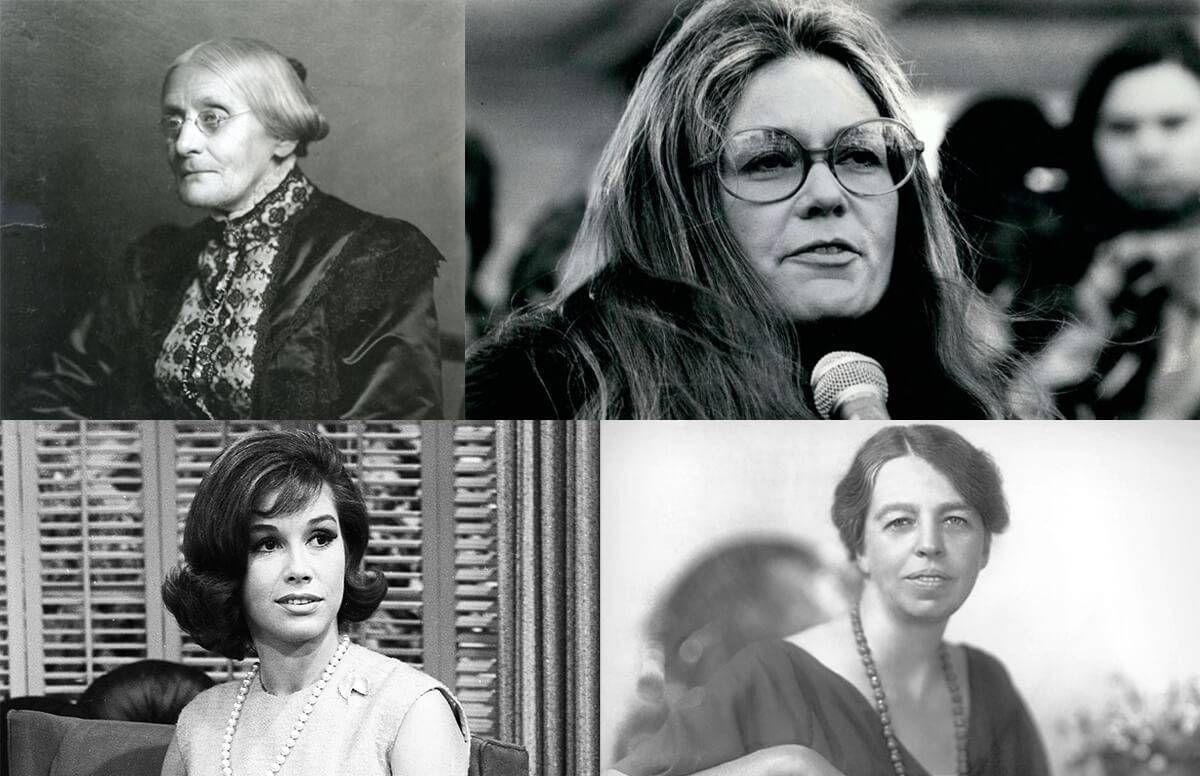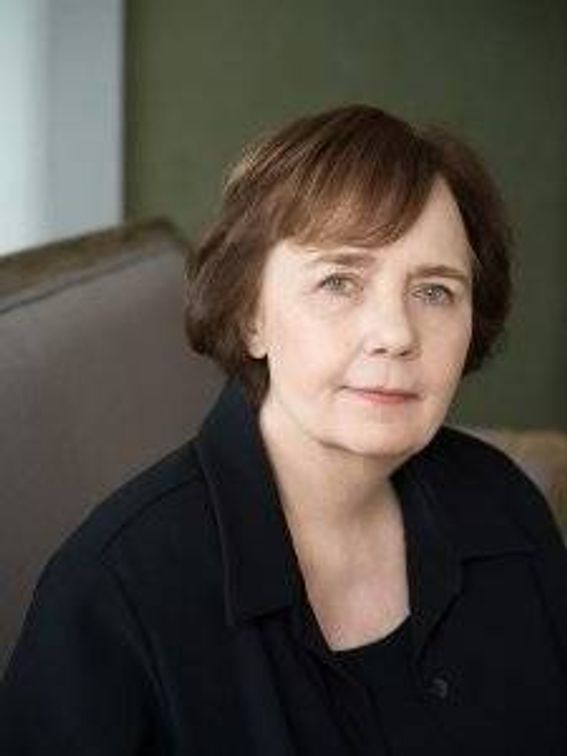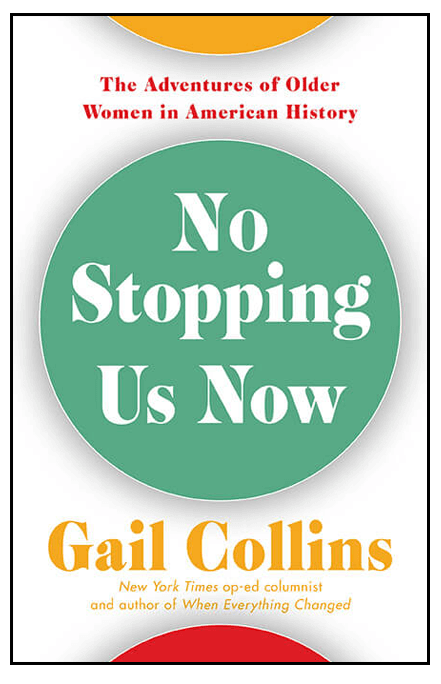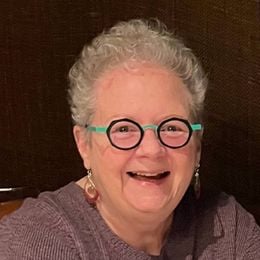A Social History of Older Women in America
In her new book, Gail Collins pays tribute to strong women past and present
“If you’re getting older — or preparing to get older — knowing what’s happened in the past is important,” says Gail Collins.

What’s happened? Well, throughout history, society’s views on older females have varied widely, even among women themselves, and that complex trajectory intrigues the author and op-ed political columnist for The New York Times.
Collins, 73, explores that trajectory in No Stopping Us Now: The Adventures of Older Women in American History, her third book on females famous and largely unknown. Collins’ previous books are America's Women: 400 Years of Dolls, Drudges, Helpmates and Heroines and When Everything Changed: The Amazing Journey of American Women from 1960 to the Present.
"Many housewives saw abolition as a personal family issue, and they wanted to do something about it, but for a long time, women who spoke in public had stones thrown at them."
“Writing about women in history is one of the most fun things I’ve done,” Collins says. Reading the new book is fun, too. Collins punctuates the compelling stories with her sharp wit, pointing out irony at every opportunity. Plus, learning how far women have come may inspire some readers to take action on issues that concern them.
In the book, Collins reminds us that abolition was the first women’s political cause. “Many housewives saw abolition as a personal family issue and they wanted to do something about it. But for a long time, women who spoke in public had stones thrown at them,” she says. “Then Elizabeth Cady Stanton figured out how to use her age as an empowering factor.”
Elizabeth Cady Stanton’s Gimmick Revealed
Once the formidable Stanton got started on the lecture circuit — where she stayed for 12 years — the gray-haired, portly woman would start out talking about being a grandma before moving on to topics such as abolition, women’s rights and divorce.
“That’s how she’d get away with it,” Collins says. “She’s one of my favorite women in history, because she used what she had and she helped transform the nation.”

Other famous feminists also are featured, including Ruth Bader Ginsburg, Bella Abzug and Betty Freidan. Gloria Steinem, 85, is among them as well.
“In the book, I make use of some of Gloria’s birthday celebrations to talk about how she empowers all women,” Collins says. “Today, whenever you see Gloria at parties or gatherings, she’s always in a corner talking to the youngest women in the room about their lives.”
Like Steinem, Collins wants young women to know that at one time not so very long ago, their career choices would have been limited to teacher or mother.
“That’s over for good,” Collins says. “Women who came of age after World War II went through a period that will never be duplicated. An entire gender that been given one role forever said that was not going to be the case anymore. Because of that, aging is different. Today, possibilities for little girls are the same as for boys, and that’s a world-altering change.”
Eleanor Roosevelt gets plenty of attention in the book. Collins quotes her as saying, “Every woman in public life needs to develop skin as tough as rhinoceros hide.” But other women, less well known, also have abided by that dictum. Mary Fields, the first African American mail carrier in the U.S., is one of Collins’ favorites. Fields delivered mail in Montana in the 1880s, sometimes driving a horse and wagon and sometimes strapping on snow shoes to get the job done.
How the Media Dissed Mary Tyler Moore
Storied author and abolitionist Harriet Beecher Stowe is in Collins's book, as is civil rights activist and educator Mary McLeod Bethune. Mamie Eisenhower — a proponent of breakfast in bed for women over 50 — is here, as are the Gray Panthers. And Collins reminds readers that in the 1970s, the media referred to Mary Tyler Moore’s TV character as “a 30-year-old spinster.”
In between profiles, Collins traces the history of wigs, fad diets, makeup, hair dye and clothing, including corsets, which helped factory workers avoid fatigue while standing all day.

She also explores the deplorable history of women’s health. For example, in the 1920s, a French scientist claimed to turn back time by implanting chimpanzee glands into older women. “The docs were forever trying to peddle something. The idea that medicine could ‘save’ women and keep them young just goes on and on,” Collins says. “With the widespread use of hormone-replacement therapy, they thought they had solved the problem. My own doctor was so proud that he’d given me this marvelous drug that would maintain my youth forever.”
Instead, the groundbreaking Women’s Health Initiative study, launched in the 1990s, revealed in 2002 that hormone replacement therapy during menopause presented an increased risk for breast cancer. Collins was among those who got it. “Menopause is part of our lives, and in the last twenty or so years, women are saying so,” she says. “It’s normal, and we’re not going to let anyone turn it into a female tragedy anymore.”
Young Women’s Approaches to Aging Will Be ‘Amazing’
Still, Collins gives the nod to modern medicine when it comes to cortisone shots and hip replacements. “And just think — if you go way back, as you aged you ended up with no teeth,” she says. “We have been delivered from that, too.”
Collins reports that on her deathbed, legendary suffragist Susan B. Anthony said, “Failure is impossible.” Does Collins think that’s still true?
“We have to believe that of everything,” she says. “In the short term, everything may not work out the way we want, just as with winning the right to vote. But if we are striving for something noble and good, it will work out.”
She expresses great faith in the younger generations. “The young women I know are everywhere, doing everything, and it’s always going to be like that from now on,” Collins says. “They will think of new ways to approach aging that go beyond what we’ve come up with. The challenges, and the adventures, are going to be amazing.”


